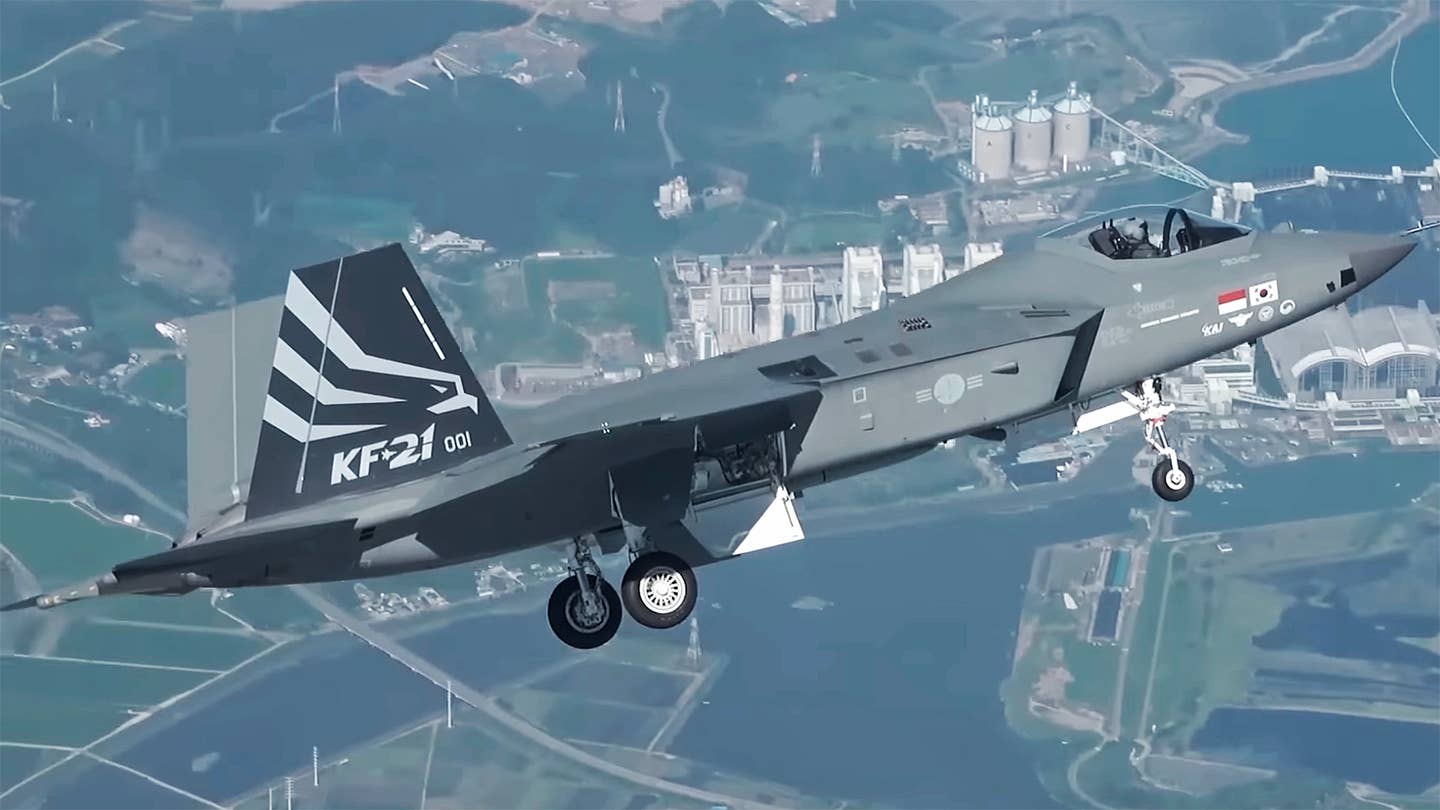After Indonesian engineers allegedly attempted to steal classified technologies related to South Korea’s KF-21 fighter jet earlier this year, a new security breach emerged, prompting a joint investigation by the Korean military, police, and the National Intelligence Service.
This investigation targets a Telegram channel purportedly offering for sale technology documents of the KF-21 fighter jet and the KUH-1 Surion helicopter, both manufactured by Korea Aerospace Industries (KAI).
Military officials announced on June 24 the launch of the investigation into the Telegram channel, which has been active since August 2023 and has claimed to possess and sell “classified military information.”
According to reports, the channel’s operator asserted in February that it had insider collaborators within Korea’s military and defense research institutions and posted photos believed to be of components of the Surion helicopter.
Moreover, the operator claimed to have obtained the technology documents of the KF-21 fighter jet and expressed intentions to sell them once they completed an internal verification process.
The channel also purportedly holds information related to the Freedom Shield joint military exercises between South Korea and the United States.
Authorities are currently focused on identifying the operator behind the Telegram channel and verifying whether the documents constitute genuine military secrets. If confirmed, the authorities will seek a formal police investigation.
Under the Defense Technology Security Act, penalties for illicitly acquiring, using, or disclosing defense industry technology can include imprisonment for up to 10 years or fines of up to 1 billion won ($720,000).
This latest incident underscores ongoing concerns regarding the protection of South Korea’s defense technology following the earlier episode involving Indonesian engineers who were apprehended attempting to abscond with vital data related to the KF-21 fighter jet.
The captured USB device, containing critical 3D modeling software and other classified materials, implicated multiple individuals in the unlawful acquisition of sensitive military technology.
South Korea Moves Forward with KF-21 Fighter Jet Production Despite Challenges
The KF-21, also known as Boramae, represents South Korea’s ambitious endeavor to develop a domestically built supersonic fighter aircraft to replace its aging fleet of F-4 and F-5 jets.
DAPA has been conducting performance tests on its fleet of six KF-21 prototypes since the first prototype’s maiden flight in July 2022.
Jointly developed with Indonesia since 2015, the program has faced recent setbacks, including allegations of technology theft and payment delays from Jakarta, prompting concerns over the future of the bilateral partnership.
While these challenges persist for the KF-21 fighter jet program, South Korea’s ambitious KF-21 Boramae continues to advance rapidly.
On June 25, Korea Aerospace Industries, Ltd. (KAI) announced that it has secured a mammoth 1.96 trillion won ($1.41 billion) deal with the South Korean Defense Acquisition Program Administration (DAPA) to commence serial production of the cutting-edge KF-21 fighter jet.

KAI’s latest contract with DAPA covers the production of 20 KF-21 units, coupled with comprehensive logistics support encompassing technical manuals and training. Emphasizing the deal’s national significance, KAI underscored its role in achieving self-reliant defense capabilities.
“The contract marks a pivotal moment as we transition into full-scale production of the KF-21, which will soon stand as a cornerstone of our Air Force,” KAI stated, highlighting the strategic importance of the fighter jet in safeguarding South Korea’s airspace.
Additionally, Hanwha Aerospace Co., another South Korean defense firm, announced a separate agreement worth 556.2 billion won (USD 401 million) with DAPA.
Under this contract, Hanwha Aerospace will supply approximately 40 F414 engines, crucial components for the KF-21, along with ongoing maintenance and technical support until December 2027.
Despite these advancements, recent statements from DAPA Chief Seok Jong-gun have cast a shadow over the program’s international cooperation.
Seok raised concerns over allegations that Indonesian engineers had illicitly obtained sensitive technology data, potentially jeopardizing future joint development efforts. He indicated that Indonesia’s involvement could hinge on the outcome of an investigation into the alleged data breach.
In response to Indonesia’s financial constraints, DAPA has agreed to reduce Jakarta’s contribution to the program, significantly scaling back technology transfer in return. This move underscores South Korea’s resolve to safeguard its technological advancements amidst diplomatic and financial challenges posed by its partnership with Indonesia.
- Contact the author at ashishmichel(at)gmail.com
- Follow EurAsian Times on Google News





